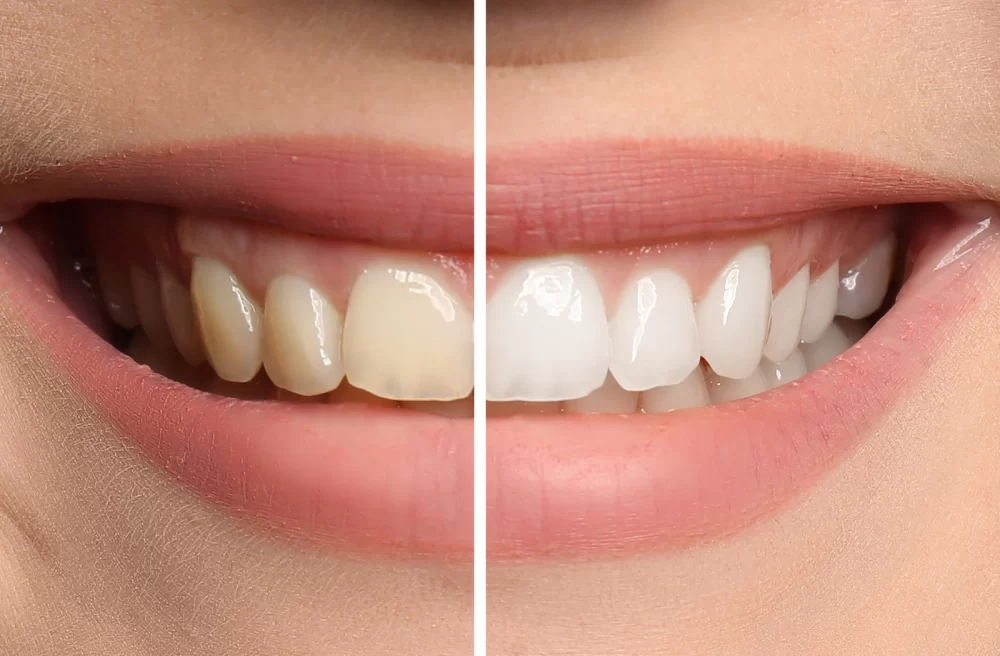
- Understanding Sensitive Teeth
- How Teeth Whitening Affects Sensitive Teeth
- Ways to Manage Sensitivity During Whitening
- Alternatives to Teeth Whitening for Sensitive Teeth
- Maintaining Dental Health After Whitening
Understanding Sensitive Teeth
Sensitive teeth can cause discomfort or pain, especially when exposed to hot or cold temperatures. This sensitivity occurs when the underlying layer of the tooth, called the dentin, becomes exposed. Dentin contains tiny tubes that lead to nerve endings, and when these are exposed, it can result in sharp pain or discomfort. The causes of sensitive teeth include gum recession, enamel erosion, cavities, or teeth grinding. Sensitive teeth make many everyday activities, such as drinking cold beverages or brushing, uncomfortable.
How Teeth Whitening Affects Sensitive Teeth
Teeth whitening products, especially those that contain hydrogen peroxide or carbamide peroxide, can irritate the sensitive nerves inside your teeth. When these products penetrate the enamel to lighten the underlying dentin, they can cause temporary tooth sensitivity. While this discomfort is often short-lived, individuals with already sensitive teeth may find whitening treatments to be particularly uncomfortable.
The effects of whitening on sensitive teeth depend on the type of treatment used, the concentration of whitening agents, and the overall condition of your teeth. For instance, professional whitening treatments tend to be stronger and may cause more pronounced sensitivity compared to over-the-counter products. However, some people may find that their sensitivity is minimal, while others experience discomfort that can last for several hours or days after the treatment.
Ways to Manage Sensitivity During Whitening
If you’re concerned about tooth sensitivity during the whitening process, there are several strategies to minimize discomfort:
- Use Products for Sensitive Teeth: Look for whitening products specifically designed for sensitive teeth. These products typically have lower concentrations of whitening agents and include ingredients that help reduce sensitivity, such as potassium nitrate.
- Apply the Whitening Agent Carefully: Avoid over-applying whitening products to sensitive areas of your teeth. If you’re using at-home whitening kits, follow the instructions carefully, and do not leave the whitening product on longer than recommended.
- Desensitizing Toothpaste: Using toothpaste designed for sensitive teeth before and after whitening can help desensitize your teeth. These toothpastes contain compounds that block the nerve pathways and reduce sensitivity.
- Whitening in Stages: Consider spacing out your whitening treatments. Instead of using a whitening product for several consecutive days, extend the interval between treatments to give your teeth time to recover and adjust.
- Consult a Dentist: Before starting any whitening treatment, especially if you have sensitive teeth, consult a dentist. They can provide advice on the best whitening options for your dental health and may recommend professional treatments that are tailored to your specific needs.
Alternatives to Teeth Whitening for Sensitive Teeth
If teeth whitening causes too much discomfort, or if you have severe sensitivity, there are alternative methods to brighten your smile without risking further discomfort:
- Whitening Strips with Lower Concentration: Some whitening strips are available in formulas that are gentler on sensitive teeth. These often contain lower levels of peroxide and may be more suitable for people with sensitivity.
- Natural Whitening Remedies: There are a number of natural remedies, such as brushing with baking soda or using activated charcoal, that can help whiten teeth gradually without causing irritation. However, these methods are typically less effective than professional treatments.
- Veneers or Bonding: If you are looking for a more permanent solution to improve the appearance of your teeth, cosmetic procedures like dental veneers or bonding may be an option. These treatments do not involve whitening and can provide a long-lasting, aesthetically pleasing result.
Maintaining Dental Health After Whitening
After whitening your teeth, it’s important to maintain your dental health to avoid future sensitivity and ensure long-lasting results. Here are some key tips:
- Maintain Good Oral Hygiene: Continue brushing your teeth twice a day with fluoride toothpaste and flossing daily. Proper oral hygiene helps to maintain the results of your whitening treatment and prevents further sensitivity.
- Avoid Staining Foods and Beverages: After whitening, your teeth may be more susceptible to staining. Avoid consuming foods and drinks that can stain your teeth, such as coffee, tea, red wine, and tobacco.
- Use a Soft-Bristled Toothbrush: A soft-bristled toothbrush can prevent irritation to sensitive teeth and gums. Additionally, avoid brushing too hard, which can wear down enamel and increase sensitivity.
- Regular Dental Check-ups: Regular visits to your dentist are crucial to maintaining both the health of your teeth and the results of your whitening treatment. Your dentist can monitor your tooth sensitivity and recommend any additional treatments as needed.
If you have sensitive teeth but still want a brighter smile, it's essential to find the right whitening solution for your unique needs. At Dentistry Toothtruth, we offer a range of products designed to help you achieve a whiter smile without compromising comfort or oral health. Browse our store to find the best whitening products and dental care solutions for sensitive teeth.







 Light Dental Studios of University Place4.0 (279 review)
Light Dental Studios of University Place4.0 (279 review) Elite Dentistry4.0 (59 review)
Elite Dentistry4.0 (59 review) Comfort Dental North Powers4.0 (914 review)
Comfort Dental North Powers4.0 (914 review) Light Dental Studios of Maple Valley4.0 (37 review)
Light Dental Studios of Maple Valley4.0 (37 review) Growing Smiles of Englewood5.0 (213 review)
Growing Smiles of Englewood5.0 (213 review) Oswego Dental Specialists4.0 (74 review)
Oswego Dental Specialists4.0 (74 review) The Importance of Oral Health Education During Pregnancy for a Healthy Pregnancy
The Importance of Oral Health Education During Pregnancy for a Healthy Pregnancy Best Tips for Brushing Your Teeth Properly for Healthy Gums: Essential Techniques for Oral Health
Best Tips for Brushing Your Teeth Properly for Healthy Gums: Essential Techniques for Oral Health Why Skipping Dental Checkups Can Lead to Bigger Oral Health Problems
Why Skipping Dental Checkups Can Lead to Bigger Oral Health Problems Advantages of Porcelain Dental Restorations
Advantages of Porcelain Dental Restorations How Can Diabetes Cause Tooth and Gum Problems? Preventing and Managing Oral Health Issues
How Can Diabetes Cause Tooth and Gum Problems? Preventing and Managing Oral Health Issues Healthy Habits for Promoting Good Oral Health and Hygiene: Tips for a Healthy Smile
Healthy Habits for Promoting Good Oral Health and Hygiene: Tips for a Healthy Smile